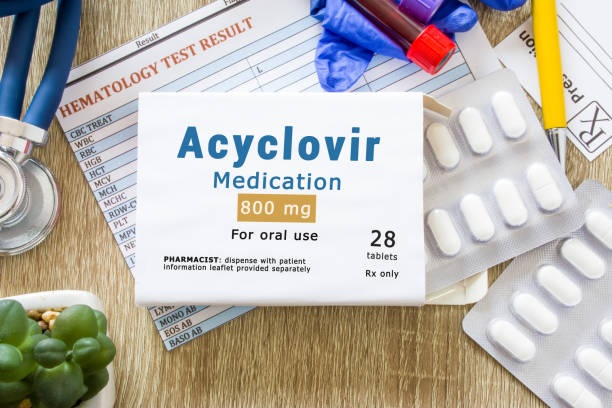Acyclovir is an antiviral drug used to treat infections from herpes viruses; it works by slowing down the growth and spread of the virus in the body. It won’t cure the condition but will reduce the symptoms and duration of the infection.
Acyclovir can improve the symptoms of chickenpox, shingles caused by herpes zoster, cold sores around the mouth caused by herpes simplex, and genital herpes.
In people with frequent outbreaks of these infections, Acyclovir can be taken to reduce the number of future episodes they will have; it decreases pain and itching, helps sores heal faster and prevents new sores from forming. In people with weak immune systems, Acyclovir can also reduce the risk of spreading the virus to other parts of the body.
Dosage
For adults (18 to 64 years), the typical dosage of Acyclovir for treating shingles is 800 mg every four hours, five times daily. It should be taken for 7 to 10 days. For genital herpes, 200 mg every four hours is usually recommended to be taken 5 times per day for 10 days. In cases of reinfection, the treatment should be repeated for 5 days.
The dosage for chicken pox is 800 mg four times per day for 5 days. This is prescribed for children and older adults based on their weight and general health condition.
Older adults have weaker kidneys; they don’t process drugs quickly and tend to experience more side effects, so the doses may be lower for extended periods.
Side Effects of Acyclovir
The common side effects of Acyclovir include:
The more severe side effects may include:
- Hallucinations.
- Confusion.
- Changes in behaviour.
- Drowsiness.
- Easy bruising or bleeding.
- Symptoms of kidney problems.
Precautions
Before taking this drug, tell your doctor if you are allergic to it and if you have a medical history of kidney problems and immune system problems.
Before taking any vaccinations or immunisations, tell the healthcare provider you are taking Acyclovir. Also, if you are pregnant or breastfeeding, discuss the risks and benefits of this drug with your doctor before taking it.
Acyclovir does not reduce your risk of spreading genital herpes to your partner, and you can spread the infection even when you do not have symptoms.
Older adults may be more sensitive to the side effects of this drug, so it is recommended that they start from lower doses.



